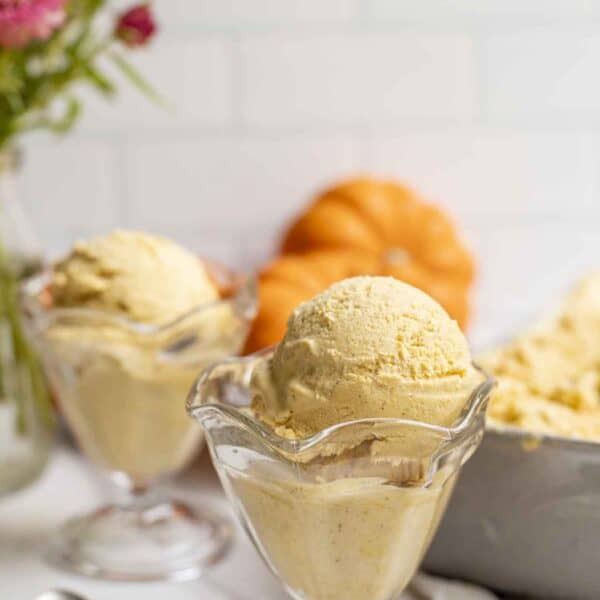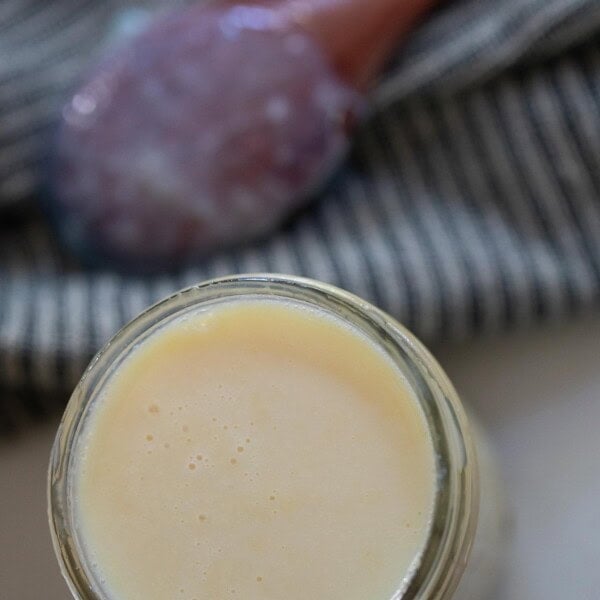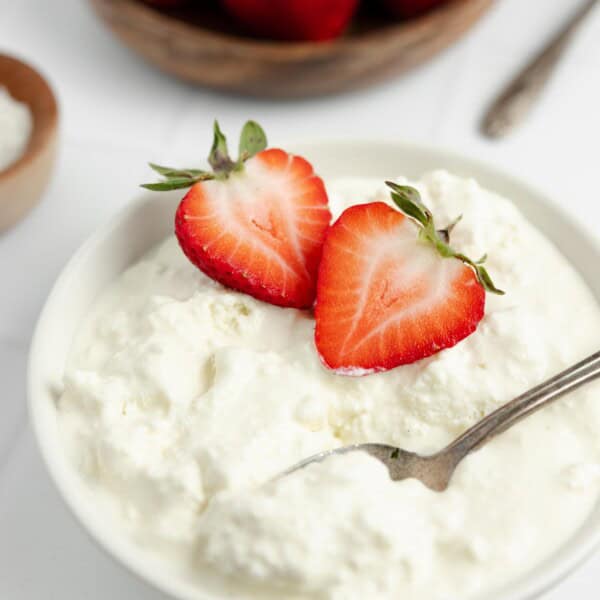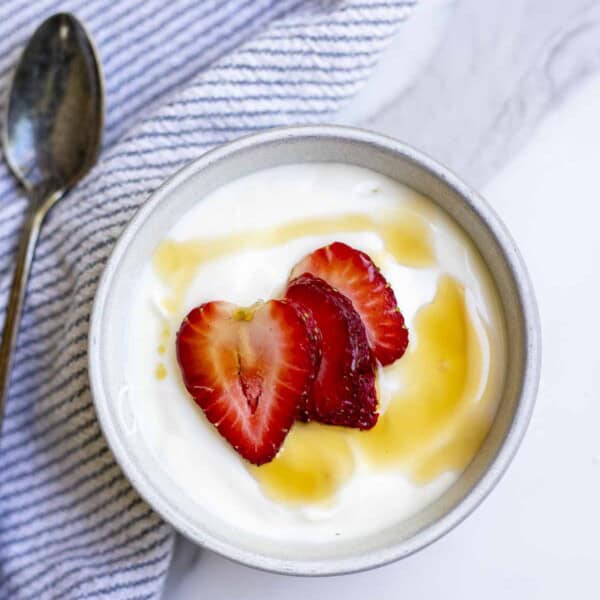Farmers cheese is an easy-to-make, mildly-flavored fresh cheese that can be enjoyed on its own, sliced atop bread, crumbled on salads, spread on crackers, or added as a filling in pasta dishes.
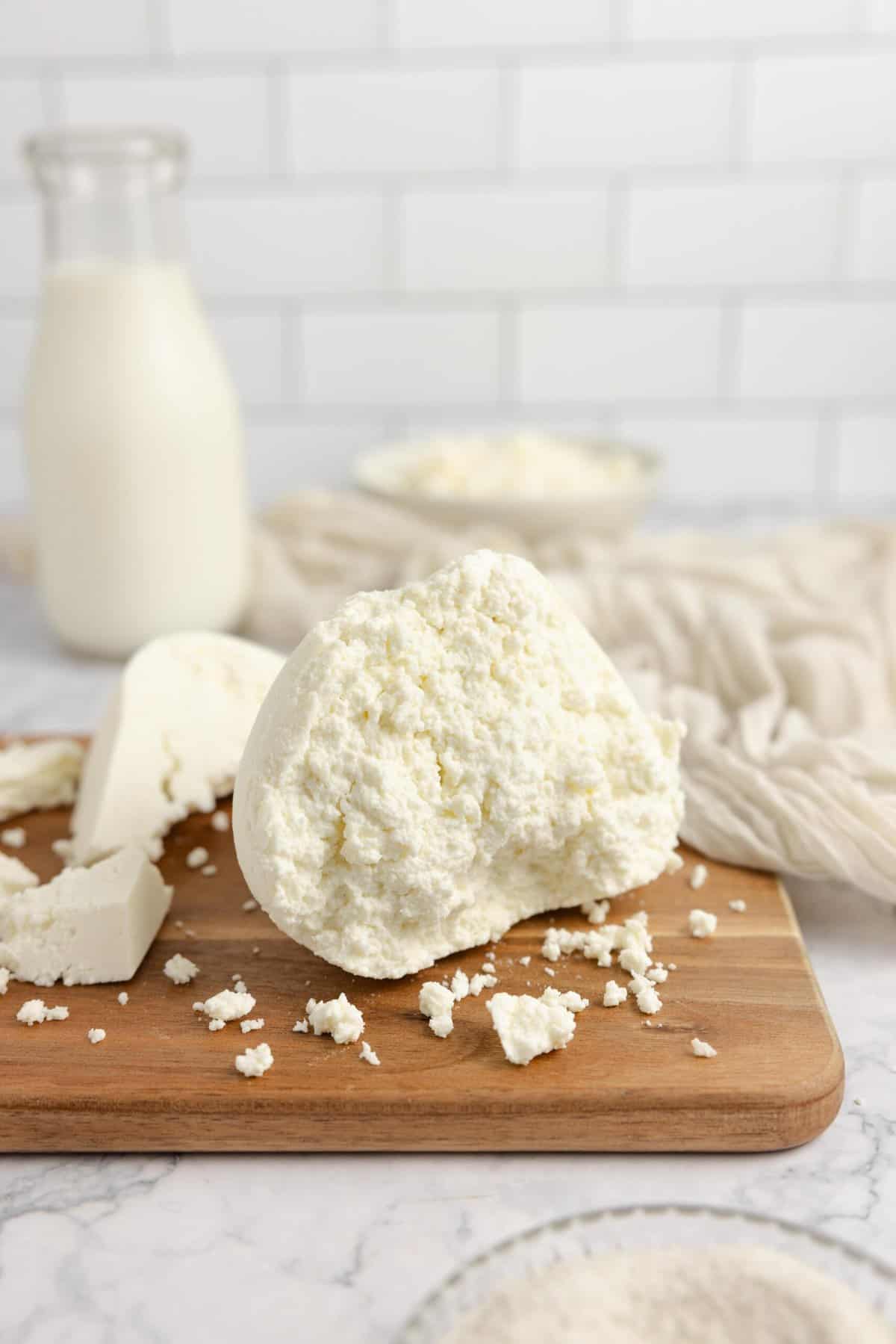
In terms of cheesemaking, fresh, unripened cheeses are your simplest gateway to making homemade cheese.
An unripened cheese is made by introducing an acid to milk proteins, triggering a coagulating effect that forms curds.
With farmers cheese, the curds are then separated from the whey by straining through a cloth, resulting in a ball of cheese that has a mild taste and soft texture.
The flavor and texture of farmers cheese compares to other homemade fresh cheeses that we love, like homemade ricotta cheese and cottage cheese, though farmers has a firmer and drier texture. The processes are similar, producing a creamy cheese in a shorter time than hard, ripened cheeses like cheddar, Swiss, and parmesan.
By choosing a good quality milk, you can be sure that your cheese will have the best flavor for use in sandwiches, salads, toppings, or fillings. Making your own also ensures a healthier product, preservative and additive-free.
And while home cheesemaking may seem like a large undertaking, this recipe gives you a simple and tasty start, requiring minimal ingredients and very little hands-on time.
Some of my other favorite recipes that are very manageable yet pay off big time in taste, quality, and cost are raw milk yogurt in the instant pot, homemade sour cream, or a batch of delicious homemade ice cream.
Why You’ll Love This Recipe
Quick and easy – Made with only three ingredients and following a very simple process, this type of cheese can be prepared and enjoyed all in the same day.
Quality ingredients – You get to choose the ingredients and control the quality of your own cheese. I love to use organic milk or fresh milk from a local farm.
Delicious – This homemade farmers cheese has a fresh, sweet flavor and a creamy texture, making it the perfect cheese for a variety of dishes and uses.
Ingredients
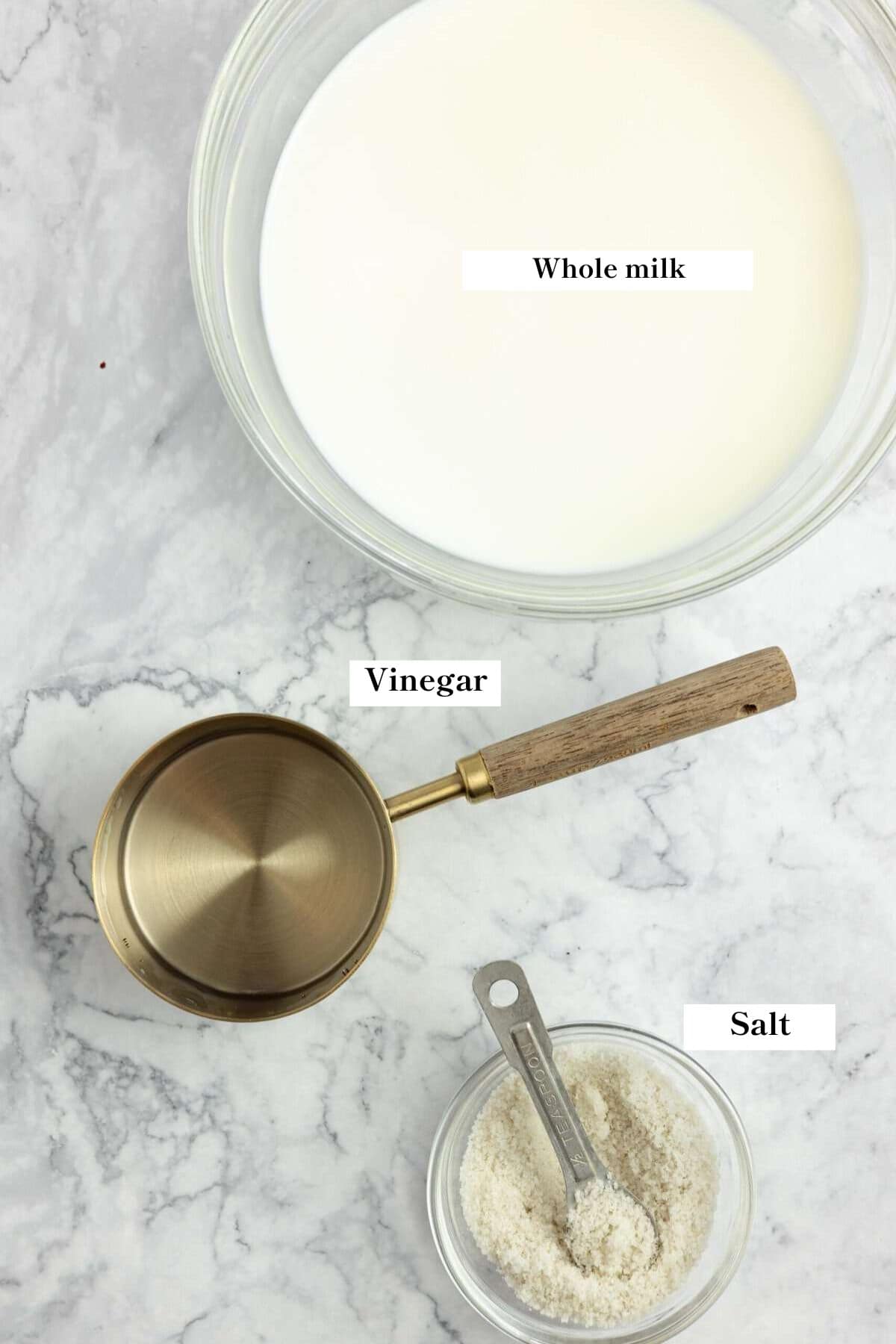
Whole milk – Whole milk gives the best results. Milk that is lower in fat may result in a more crumbly texture, and using straight cream can make the cheese difficult to strain into a firm ball.
White vinegar – Lemon juice or apple cider vinegar make a great substitute, though I prefer white vinegar.
A full ingredient list with exact amounts can be found in the recipe card below.
Tools You May Need
Cheesecloth – A clean muslin towel also works well as it can be used repeatedly and is very affordable.
How to Make Farmers Cheese
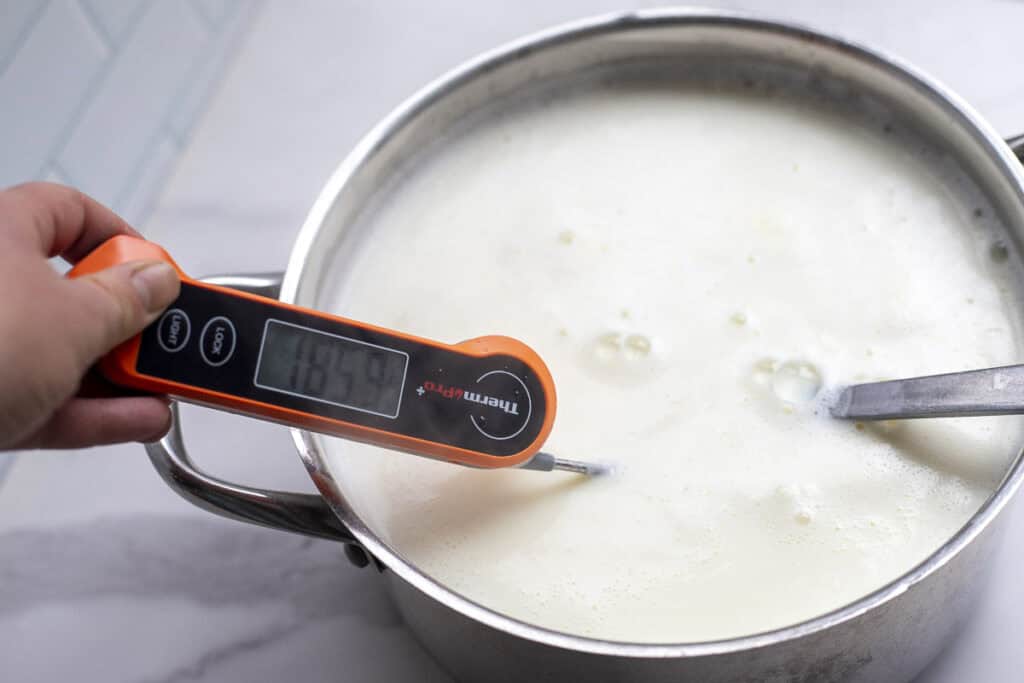
Step 1: Pour your gallon of milk into a large pot over medium heat, stirring often just until it begins to boil or reaches 185 degrees Fahrenheit. Be sure to whisk the bottom of the pot so the milk doesn’t scald.
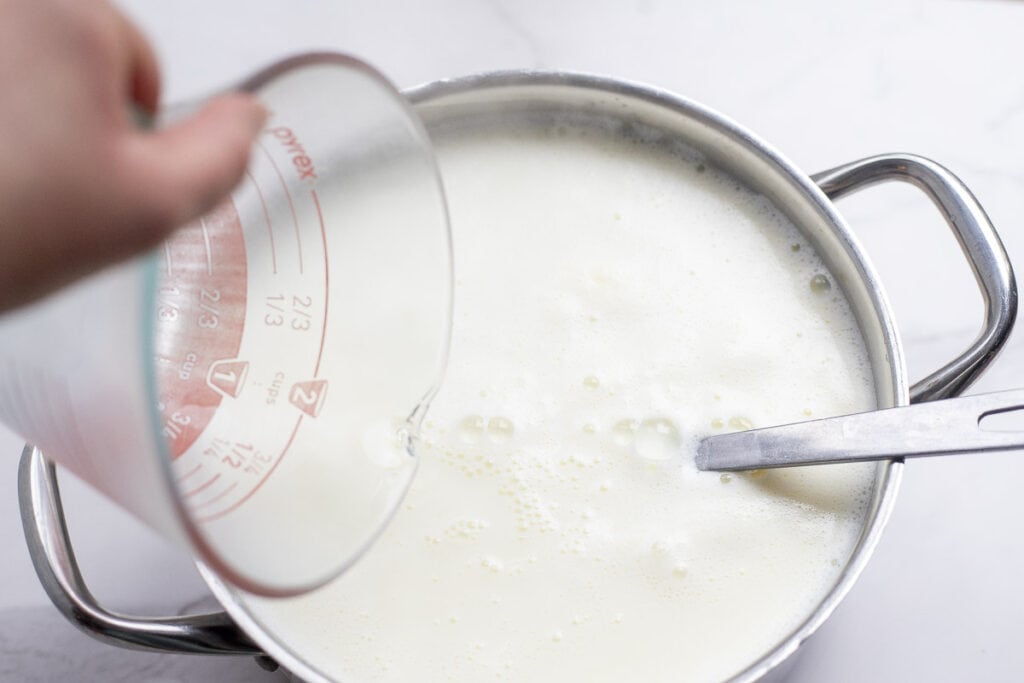
Step 2: Stir in the white vinegar and salt. Whisk, then remove from the heat and let sit for 15 minutes.
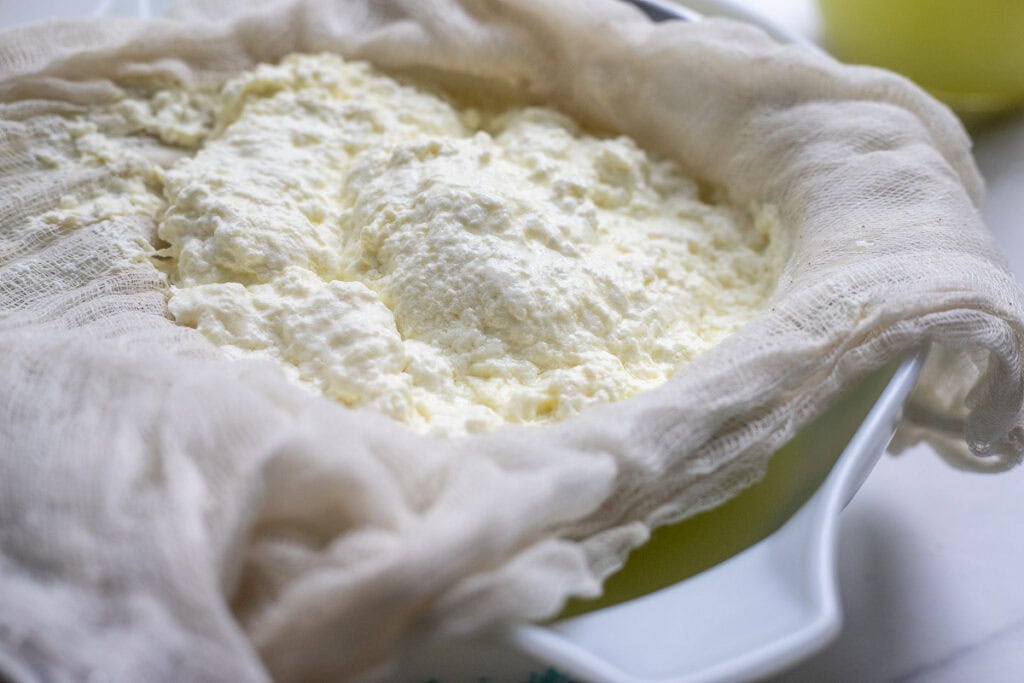
Step 3: Strain the curds from the whey into a cheesecloth or clean muslin towel over a colander and large bowl. Keep your whey for other recipes! Once cooled enough to touch, strain any excess liquid whey from the curds with your hands by twisting the cheesecloth until the curds are in the form of a ball.
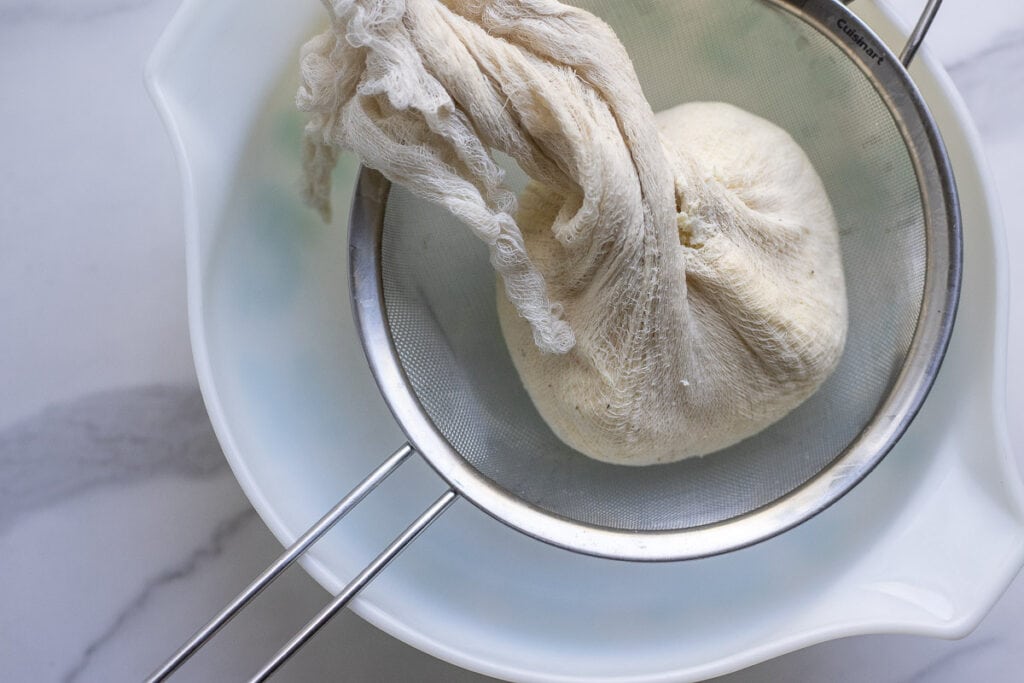
Step 4: Tightly tie the cheesecloth so the curds can form into a ball while chilling. Place the tied bag of curds into the strainer over the bowl to continue collecting the whey. Place into the fridge for a minimum of 4 hours or even overnight to continue to strain and firm up.
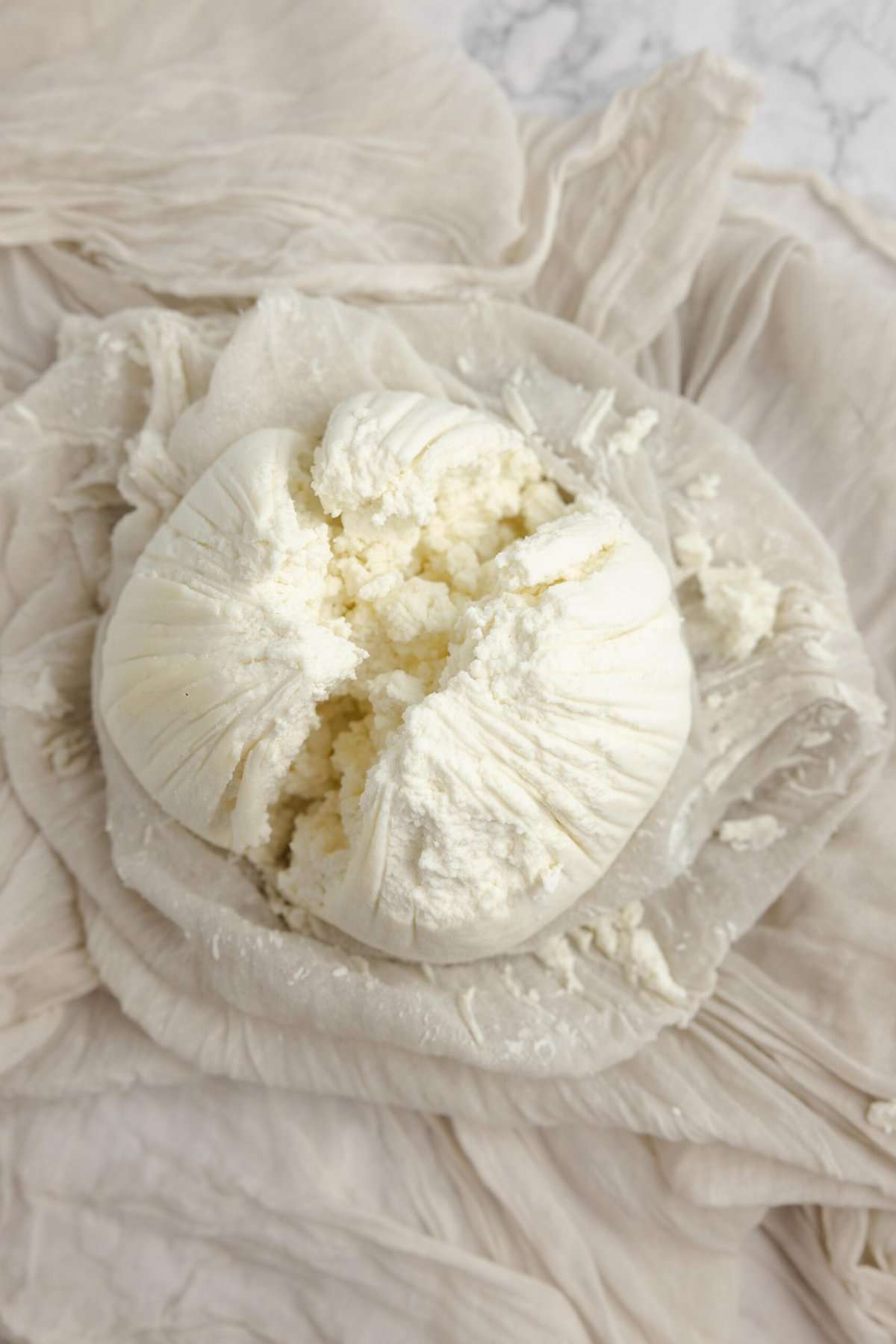
Step 5: Unwrap the chilled curds from the cheesecloth. Slice or crumble the cheese and enjoy!
Tips
- This recipe does not work well with lower fat options like skim milk or 2%. It needs a higher fat content like whole milk or it will be too crumbly.
- Keep the leftover whey for use in other recipes, like this no-knead sourdough bread, berry kefir smoothies, fermented lemonade, or in soups like this easy Zuppa Toscana for added flavor.
- To boost the flavor of the cheese, you can experiment with adding fresh herbs and seasonings to the curds after straining from the whey but before tying them up into the cheesecloth. Mix gently with your fingers or a spoon. Some great options are chopped garlic, dried onion, basil, dill, rosemary, or even chopped sun-dried tomatoes.
Recipe FAQs
It is similar to ricotta, though drier and firmer. It has a bit more tang than ricotta but is fresh, sweet, and mild.
While it will heat and become softer, it remains crumbly and does not melt. This makes it a good option for frying!
Farmers cheese is a protein and calcium-rich choice when made with quality milk.
Store in an airtight container in the refrigerator for up to a week. While it can be frozen when wrapped properly, the texture will be different and much more crumbly.
Enjoy on homemade bread, crumbled on salads, with fresh fruit and honey, or on a charcuterie board.
More Dairy Recipes from the Farmhouse
- Homemade Cream Cheese
- Greek Yogurt Cream Cheese
- Homemade Mozzarella Cheese
- Sourdough Grilled Cheese Sandwich
- Homemade Sweetened Condensed Milk
If you try this recipe and love it, I would love it if you could come back and give it 5 stars! Tag me on Instagram @farmhouseonboone.
Farmers Cheese
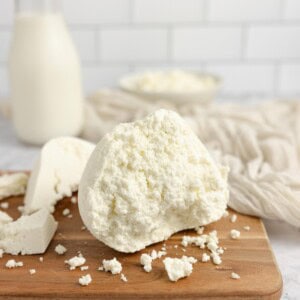
Ingredients
- 1 gallon whole milk
- ⅔ cup white vinegar
- 2 teaspoons salt
Instructions
- Pour your gallon of milk into a large pot over medium heat, stirring often just until it begins to boil or reaches 185 degrees Fahrenheit. Be sure to whisk the bottom of the pot so the milk doesn’t scald.
- Stir in the white vinegar and salt. Whisk, then remove from the heat and let sit for 15 minutes.
- Strain the curds from the whey into a cheesecloth or clean muslin towel over a bowl and large colander. Keep your whey for other recipes! Once cooled enough to touch, strain any excess liquid whey from the curds with your hands by twisting the cheesecloth until the curds are in the form of a ball.
- Tightly tie the cheesecloth so the curds can form into a ball while chilling. Place the tied bag of curds into the strainer over the bowl to continue collecting the whey. Place into the fridge for a minimum of 4 hours or even overnight to continue to strain and firm up.
- Unwrap the chilled curds from the cheesecloth. Slice or crumble the cheese and enjoy!
Notes
Nutrition
Nutrition information is automatically calculated, so should only be used as an approximation.
